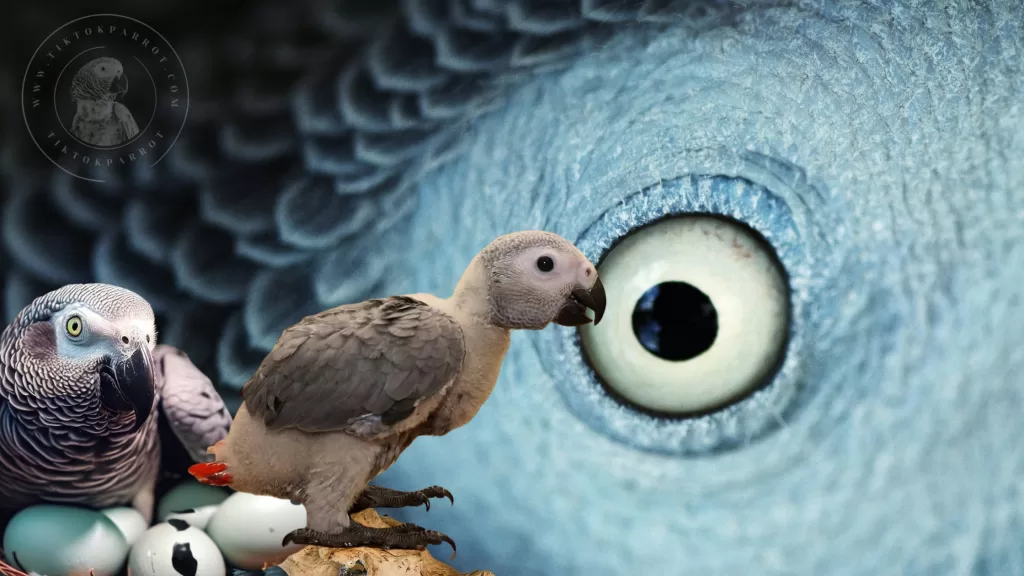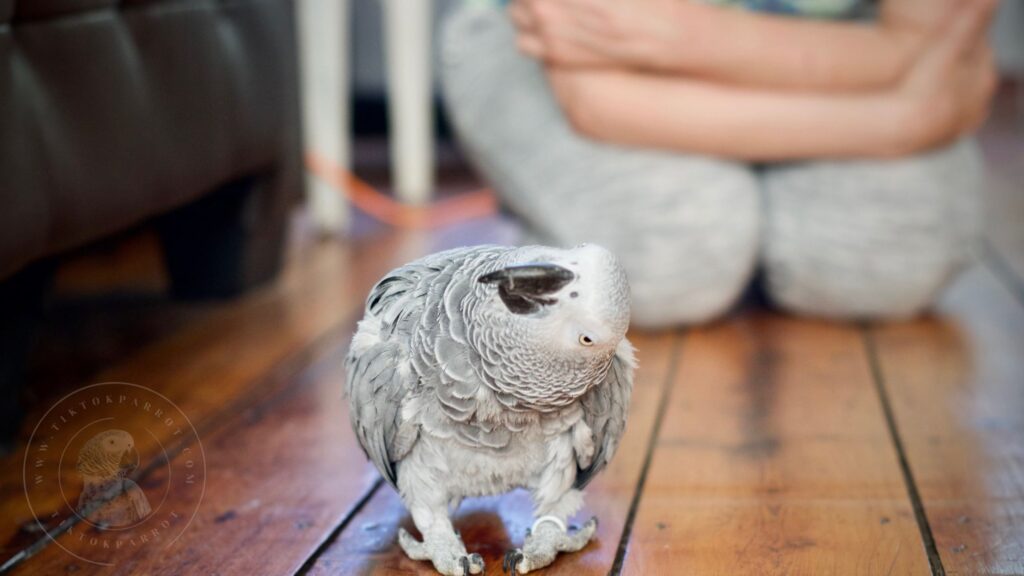Thinking about whether an African Grey parrot makes a good pet brings up important questions about taking care of birds. These smart birds can become close to humans, but they need lots of love, attention, and mental activity to stay healthy and happy.
Explore the charm of African Grey parrots! Learn about their smarts, emotional bonds, and if they’re the ideal pet for you. Uncover the wonders of these feathered companions in our guide.
Choosing the right pet for your household is no small decision. Among the myriad of options, the African Grey parrot stands out as a captivating and intelligent choice. In this article, we’ll explore the qualities that make African Greys unique companions, while considering whether they are the right fit for you.
African Grey Parrot Insights

African Greys are about 15 to 18 ounces heavy and around 13 inches long. They can live up to 80 years, which is quite impressive. They have different shades of grey on their feathers, and their red tail feathers make them look even more fascinating.
Their beautiful shades of grey, complemented by captivating red tail feathers, add to their allure. These characteristics make them visually appealing additions to any household.
These birds are really smart. They can learn more than 1,000 words and put them together in sentences that make sense. This makes them one of the cleverest bird species in the world. Their remarkable cognitive abilities contribute to their distinction as one of the most astute bird species globally.
Emotional Bonds
African Greys often get very attached to one person and can understand how that person is feeling.
African Greys are not just brainiacs; they’re also emotionally sensitive creatures. These parrots often form intense bonds with a singular individual, displaying an uncanny sensitivity to their handler’s emotional state. If you’re seeking a pet that can connect with you on a deeper level, an African Grey might be the perfect choice.
Not for Novice Owners
However, it’s crucial to note that African Greys are not recommended for novice pet owners. Their well-being relies on extended periods of interaction, stimulating activities, and adherence to a consistent routine. They need ample flying space and at least 5 hours of mental stimulation daily to ward off despondency.
African Greys are not the best choice for new pet owners. They need a lot of attention, engaging activities, and puzzles to stay happy and healthy. It’s important to stick to a daily routine and give them enough space to fly around.
Because they are really smart, as I said above they need at least 5 hours of mental stimulation every day to avoid feeling sad or bored. Knowing how to use positive reinforcement and operant conditioning is helpful for training them. If you’re new to having a pet, it’s important to learn these effective techniques.
Nurturing Your African Grey
The care regimen for an African Grey parallels that of attending to a toddler, demanding abundant social interaction, mental engagement, extensive exercise beyond the confines of their cage, and substantial attention for optimal thriving.
Cage Considerations
The enclosure for your African Grey should provide adequate space for unhindered wing extension and comfortable movement between perches. Constructed with secure, clean, and non-toxic materials, the cage should feature perches of varied heights, textures, and widths. A concrete perch aids in maintaining tidy toenails.
Avoid situating perches directly over water or food to prevent contamination, placing the enclosure in a safe, draft-free, indirectly lit location. These socially inclined birds prefer being integrated into their handler’s daily activities.
Dietary Guidelines
Contrary to a seed-based diet, prevalent in their natural habitat, a nutritionally balanced regimen consists of 75% high-quality formulated diets in crumble or pellet form. Dark, leafy greens, fruits, and vegetables should constitute 20 to 25% of their diet, with treats limited to 5% or less. A constant supply of fresh, clean water is essential.
Exercise & Enrichment
African Greys necessitate a minimum of an hour daily for interactive play involving games, puzzles, and learning experiences. Additionally, 2-3 hours of exercise and out-of-cage time are vital for muscle development and obesity prevention. Supervision is crucial to prevent mishaps during exploration, as these intelligent birds may engage in undesirable activities.
Given their extraordinary intelligence, training an African Grey requires proficiency in operant conditioning and positive reinforcement. Novice pet owners should familiarize themselves with effective techniques to ensure a harmonious relationship with their feathered companion.
Health Considerations
Taking your African Grey to the vet twice a year is really important. The vet should specialize in caring for unusual pets like birds. These check-ups help keep your parrot happy and healthy.
The vet will do things like checking its poop, taking blood tests, and giving it necessary shots to prevent sickness. Trimming its wings and nails every now and then is also good for your parrot’s well-being.
Without diligent at-home care and professional veterinary attention, African Greys may manifest problematic behaviors and health issues, ranging from feather picking, fearfulness, and aggression to respiratory illnesses and circovirus.
Evaluating the Investment

Owning an African Grey demands considerable commitment. For those frequently away from home, engaged in frequent travel, or lacking 3-5 hours daily for dedicated interaction, an African Grey may not be an ideal pet.
However, for those seeking a devoted feathered companion, it’s crucial to acknowledge the potential longevity of up to 80 years, requiring consideration for the bird’s future well-being.
Prospective owners are encouraged to explore local parrot rescue agencies for adoption. These organizations provide insights into a bird’s personality, health, and background, often offering educational resources for new bird owners.
When contemplating a purchase, vetting the breeder or seller is essential to ensure ethical treatment and good health of the bird. Prices may fluctuate, prompting consultation with a local exotic vet for an estimate encompassing food, equipment, and essentials.
My Closing Thoughts
Overall, I would say the decision to welcome an African Grey parrot into your life demands thorough consideration of their unique needs and characteristics. If you’re ready for the challenge, an African Grey could be the smart and loyal companion you’ve been looking for.
If you found this blog helpful, It would be great if you could share it with your family and friends who might find it useful as well.
You might like to read these as well 🙂
African Grey Parrot Eyes Shape
The Mesmerizing Eyes of African Grey Parrot & What They Can Tell
Why African Grey Parrot Has Black Tongue
African Grey Parrot Brain Size And Intelligence Level
How to Gain the Love of an African Grey Parrot
Male Parrot Nesting Behavior
For more useful content about African grey parrots, you can subscribe my site with your email to get notification upon publishing a new blog, the subscribe box you can see on the right side of this page. Also if you get an alert on your web browser while browsing my site, allow it and that will also give you an alert whenever I publish a new blog. 🙂
Stay safe and much love!



